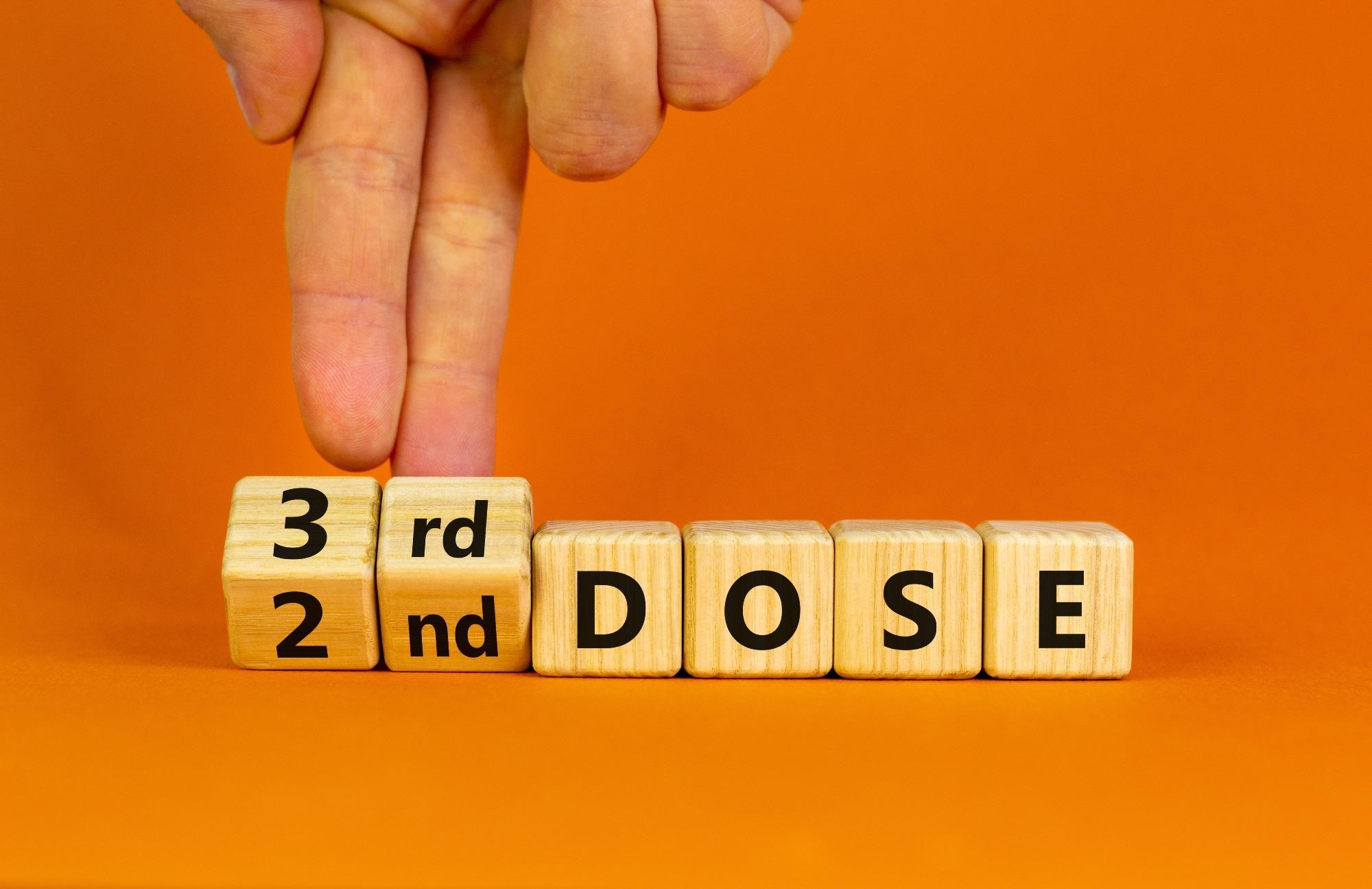The Omicron variant of severe acute respiratory syndrome coronavirus 2 (SARS-CoV-2) has a high number of mutations in the spike gene and has spread rapidly, which has raised questions about the effectiveness of current medical measures. Therefore, devising appropriate healthcare strategies is key to countering the present coronavirus disease 2019 (COVID-19) pandemic.
For the study, two and three doses of the SARS-CoV-2 mRNA (Pfizer/BNT162b2) vaccine, clinical-stage therapeutic antibodies, and serum samples from unvaccinated individuals infected by different variants were considered.
 Study: SARS-CoV-2 BA.1 variant is neutralized by vaccine booster-elicited serum, but evades most convalescent serum and therapeutic antibodies. Image Credit: Dmitry Demidovich / Shutterstock
Study: SARS-CoV-2 BA.1 variant is neutralized by vaccine booster-elicited serum, but evades most convalescent serum and therapeutic antibodies. Image Credit: Dmitry Demidovich / Shutterstock
Background
The Omicron (Pango lineage B.1.1.529 or BA.1) variant was identified as a variant of concern (VOC) in November 2021. Its multiple mutations and rapid spread have led to large-scale international efforts to track its spread and evaluate the potency of therapeutics and vaccines. The Omicron BA.1 variant has 39 amino acid substitutions, including 15 in the receptor-binding domain (RBD), responsible for mediating virus attachment to the angiotensin-converting enzyme 2 (ACE2) receptor on target cells.
Previous research has shown that many of the RBD changes reduce the effectiveness of several therapeutic neutralizing antibodies. Recent studies have shown that vaccine boosters help overcome immune evasion to some extent. However, substantial vaccine evasion has been observed in two-dose vaccine-elicited serum samples, convalescent serum samples, and many monoclonal antibodies. In addition, there is significant heterogeneity across studies in terms of methods, sample timing, host characteristics, etc. The ability of host demography in predicting neutralizing humoral responses have also not been documented.
A New Study
For the current study, researchers used lentiviral pseudoviruses to quantify antibody neutralization of the Omicron BA.1 variant. Three important contexts were considered. Researchers first analyzed the antibodies induced after two and three immunizations with the Pfizer/BNT162b2 vaccine in the same individuals. The second context involved studying antibodies induced by infection with other SARS-CoV-2 variants. Third, scientists considered 18 therapeutic antibody products and one antibody mimetic protein product (currently in use) to study antibody responses. The magnitude of neutralization escape by Omicron was compared to the D614G and Delta variants. This provided further data to understand the correlates of protection to inform public health decisions.
Key Results
Scientists revealed that most vaccinated individuals possessed low or undetectable antibody titers against Omicron after the second Pfizer/BNT162b2 dose, and this report was consistent with previous reports. Additionally, researchers revealed that the third vaccination significantly enhanced neutralizing titers much more than the level elicited after the second vaccination. The authors obtained samples at a similar time after the second and third vaccination to understand the difference in induction of immune responses.
Although the study cohort contained healthy adults and the post-vaccine sampling time was small, researchers did not find any link between sex or age with neutralizing titers.
In the future, more research associated with the evaluation of longevity and effectiveness of neutralizing antibodies against the Omicron variant is needed. It is imperative to link the levels of neutralizing titers with the clinical COVID-19 outcomes. Previous studies have shown that the COVID-19 booster vaccination strategy has substantially lowered the rates of severe COVID-19 infection.
Interestingly, some studies have indicated that infection followed by vaccination elicited neutralizing titers comparable to or even higher than titers achieved following two doses of vaccination. Scientists conducted antigenic cartography analysis, revealing that Omicron is antigenically distant from D614G and Delta variants of SARS-CoV-2. Researchers stated that this distance decreases following booster vaccination. Although the level of neutralizing antibodies against the Omicron variant was low after the second vaccination, the levels were enhanced significantly following the booster dose.
The current study revealed that specific substitutions in the Omicron spike protein near the prefusion-stabilizing 2P mutations (K986P and V987P), used in mRNA vaccine, could effectively stabilize conformations that expose shared epitopes between the D614G vaccine antigen and Omicron. The authors stated that changes in antigenic distances after vaccination indicates the proportion of D614G-specific antibodies. In addition, it also reflects the amount of antibodies that cross-neutralize variants.
Researchers revealed that for convalescent serum samples, the neutralizing antibodies varied against Omicron were mostly low. Most of the therapeutic antibody products were developed before the emergence of the SARS-CoV-2 variants of concern. Among all the antibody products tested, DARPin and two of eighteen clinical-stage therapeutic antibody products, were effective against the Omicron variant, comparable to D614G. Additionally, eight other therapeutic antibody products showed measurable potency against Omicron to varying degrees. The current study revealed three cocktail products (Amubarvimab: Romlusevimab, Tixagevimab: Cilgavimab, and Bamlanivimab: Etesevimab: Bebtelovimab) remained potent against Omicron variant at varying degrees. Interestingly, two polyclonal preparations derived from convalescent donors remained potent.
Conclusion
The fundamental limitations of this study include moderate sample size, lack of long-term follow-up, restricted timing of serum collection, and the limited number of variants examined. A key strength of this study is the use of serum samples from a well-characterized cohort. The current study emphasizes that booster vaccination enhances protection against the Omicron variant by inducing a high neutralizing titer.